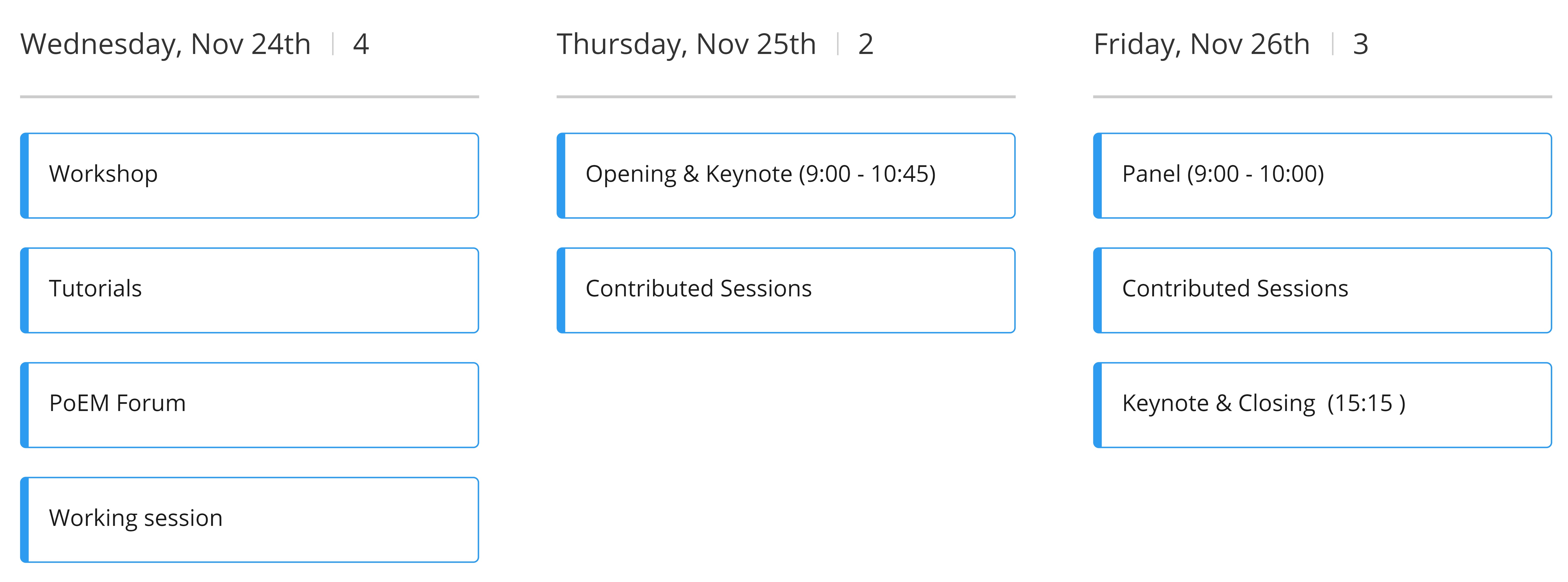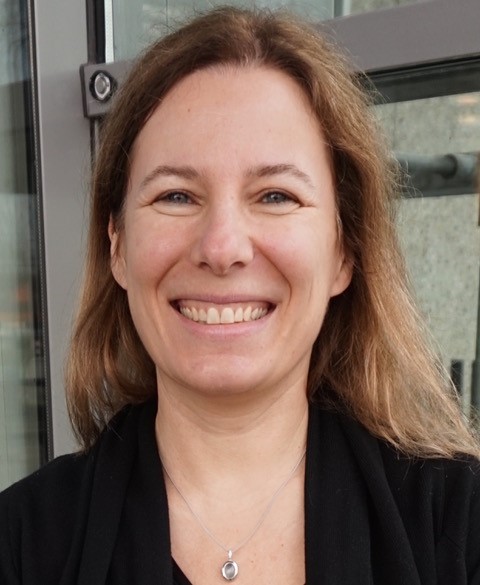Program at a glance (All times are CET)

Keynotes
Software sustainability and Green IT (tentative topic)
|
by Patricia Lago, Vrije Universiteit Amsterdam Bio: Patricia Lago is a professor at the Vrije Universiteit Amsterdam, the Netherlands, where she leads the Software and Sustainability (S2) research group in the Computer Science Department, and adjunct professor at Chalmers University of Technology, Sweden. Her passion in research is to create software engineering knowledge that makes software better, smarter, and more sustainable. Her research focuses on software architecture, software quality assessment, and software sustainability. She is initiator of the VU Computer Science Master Track in Software Engineering and Green IT, the director of the Master Information Sciences and co-founder of the Green Lab, a place where researchers, students and companies collaborate to measure the energy footprint of software solutions and the impact on software quality. She has a PhD in Control and Computer Engineering from Politecnico di Torino and a Master in Computer Science from the University of Pisa, both in Italy. She is program committee member and reviewer of the major international conferences and journals in her fields of interest; a member of the Steering Committees of IEEE ICSA, ECSA; currently the Steering Committee Chair of the ICT4S conference series; and a member of the Dutch Knowledge Network on Green Software. She is also in the management team of IPN (ICT-research Platform Netherlands). She has published over 200 articles in all major scientific conferences and journals of her field. She is a senior member of ACM and IEEE. More info at: www.patricialago.nl
|
 |
Design Science for Constructive Enterprise Modelling
by Paul Johannesson and Erik Perjons (Stockholm University)
Within design science, models are considered one of the most important kinds of contributions, if not the most important one. We will compare the notion of a model in design science with the view of models as it has emerged in the enterprise modelling practice. One issue is whether models in design science and enterprise modelling solely have a prescriptive function or whether they also can have descriptive and explanatory functions. This issue raises the question of the relationship between models in design and science. Another issue is how enterprise models today take a constructive role instead of a purely representative one, as reality is not only described but also constructed through models in digital systems. We will discuss how these issues can be addressed by distinguishing between real and imagined systems, models, model types, and model descriptions.
Information about the presenters:
Paul: https://www.su.se/profiles/pajo-1.181787
Erik: https://www.linkedin.com/in/erik-perjons-5b0ab114/
Panel: How to build a perfect EM method?
Jolita Ralyté
Panelists:
- Mārīte Kirikova, Riga Technical University
- Dominik Bork, Vienna University of Technology
- Manfred Jeusfeld, University of Skövde
- Janis Stirna, Stockholm University
Working session: The future of enterprise modelling, enterprise engineering, and enterprise architecture (EMEA)
by Erik Proper and Janis Stirna
The working session will discuss the issues related to the field of research on the practice of enterprise modeling. In particular, we will discuss two emerging activities for the community, namely, Models at Work (https://www.models-at-work.org/home) and a possible formation of a task force on the future of EMEA within IFIP WG8.1 Design and Evaluation of Information Systems (https://research.idi.ntnu.no/ifip-wg81/start).
